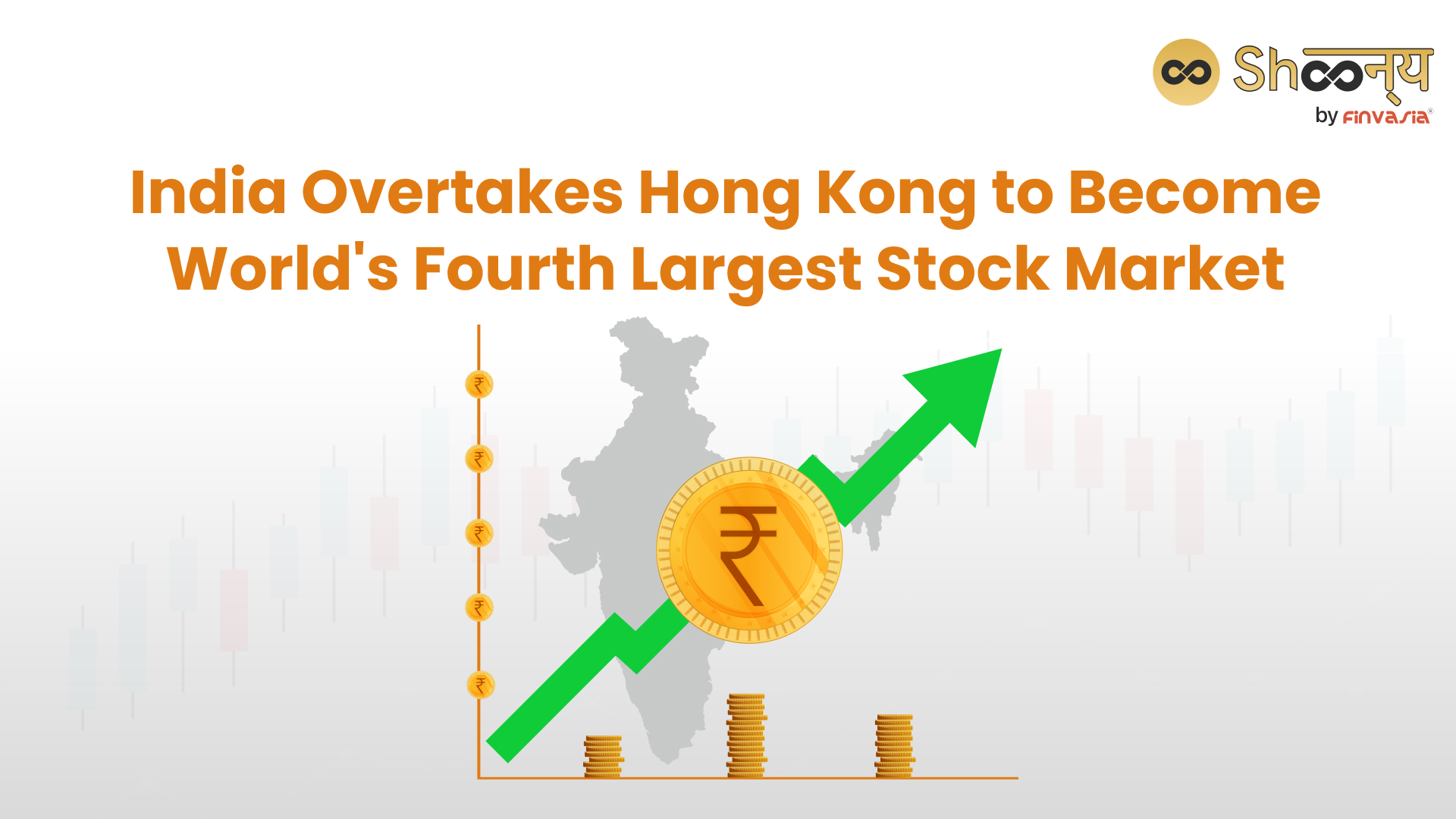India Becomes World’s Fourth Largest Stock Market By Market Cap

In a groundbreaking achievement, India has surpassed Hong Kong, securing the fourth spot in the global stock markets by market capitalisation. This milestone comes on the back of a robust 2023, where Indian stocks reached unprecedented heights, fueled by bullish investors and increased domestic participation. Let us explore the key details of the latest ranking by Bloomberg that has led India to achieve the position of fourth largest stock market.
Key Highlights of Indian Stock Market Today
- India overtakes Hong Kong to become the fourth-largest stock market by market capitalisation.
- Indian market cap reaches $4.33 trillion, surpassing Hong Kong’s $4.29 trillion.
- The United States remains the world’s largest market, with a massive $50.86 trillion market cap, followed by China and Japan.
- Indian stocks witnessed record highs in 2023, driven by bullish investors and increased domestic participation.
- Correction in HDFC Bank earnings prompts concerns, but analysts foresee potential rate cuts in 2024 to boost investor confidence.
Indian Stock Market Rally and Anticipation for Budget Announcement
As of January 22, India’s market cap reached $4.33 trillion, edging past Hong Kong’s $4.29 trillion, according to data from Bloomberg. The United States, China, and Japan maintain their positions as the top three markets, with market caps of $50.86 trillion, $8.44 trillion, and $6.36 trillion, respectively.
Bullish Trends in 2023 and Future Prospects
Indian stocks soared to new heights in 2023, driven by bullish investors and increased domestic participation. However, a recent correction triggered by lower-than-expected earnings in HDFC Bank raised concerns. Analysts are optimistic about the potential impact of anticipated rate cuts by global central banks in 2024, which could further fuel the Indian market rally. With investor attention now turning to the upcoming budget announcement on February 1, the market is poised for potential shifts.
Impressive Performance in 2023: Key Gainers and Market Growth
In 2023, both Sensex and Nifty recorded significant gains, advancing 18.8 percent and 20 percent, respectively. BSE MidCap and SmallCap outperformed, jumping 45.5 percent and 47.5 percent, respectively. Notable gainers included Tata Motors (101 percent), Bajaj Auto (88 percent), NTPC (87 percent), L&T (69 percent), and Coal India (67 percent).
India’s Resilience vs. Hong Kong’s Challenges
While India’s equity markets have experienced eight consecutive years of growth, the Hang Seng index of the Hong Kong Stock Market has declined for the fourth consecutive year.
The Shanghai Stock Exchange also saw its second consecutive year of losses. India’s growth is attributed to strong sentiments, improving macroeconomic conditions, and expectations of interest rate cuts.
In contrast, the Hong Kong stock market faces challenges amid a Chinese economic downturn and pressure on American investors to divest from Chinese companies.
Political Landscape and Investor Confidence in the Indian Stock Market
The recent victory of the Narendra Modi-led National Democratic Alliance (NDA) in multiple state elections has bolstered investor confidence. As India approaches central government elections in April 2024, continuity in policies is expected if Modi and the BJP-led NDA secure a third consecutive term. Analysts anticipate measures to propel India’s economy towards the coveted Rs 5 trillion mark.
Contrasting Economic Paths: U.S. vs. China and Hong Kong
While the U.S. market witnessed a 25% rise in the S&P 500 in 2023, reflecting a robust job market and eased inflation, China and Hong Kong faced challenges. The expectation of China’s economic rebound post-pandemic did not materialise fully, leading to a hesitant household spending scenario. The economic downturn and China’s property crisis have contributed to the decline in Hong Kong’s stock markets, particularly affecting real estate developers facing the prospect of a collapse.
Conclusion
India’s rise to the fourth-largest stock market globally shows a significant achievement driven by bullish investor sentiments and increased domestic participation. Despite a recent correction, analysts foresee potential boosts from anticipated global rate cuts in 2024, further fueling the Indian stock market rally. As geopolitical and economic dynamics continue to evolve, market participants eagerly await key developments, including the upcoming budget announcement and the outcome of India’s central government elections.
Source- bloomberg.com, moneycontrol.com
______________________________________________________________________________________
Disclaimer: Investments in the securities market are subject to market risks; read all the related documents carefully before investing.








